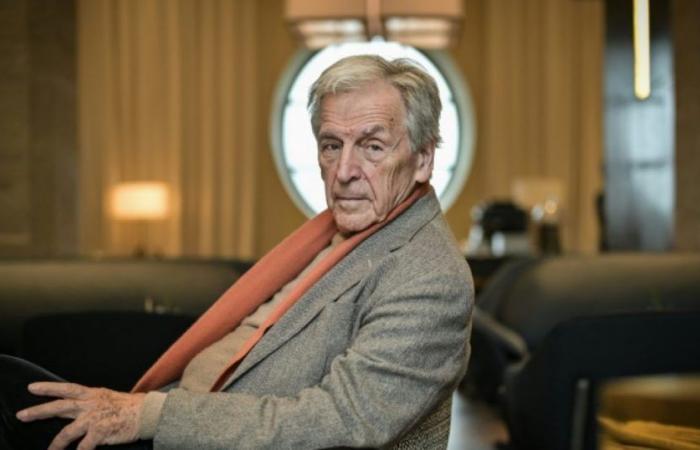“I am reaching an age where the end of life is approaching.” At 91, Franco-Greek filmmaker Costa-Gavras tells AFP he is preparing for death by making what he does best: a political film.
Guest of honor at the Lumière festival in Lyon, the director of Z ou l’Aveu presented his new feature film, Dernier Souffle, which will be released in theaters in January 2025.
Adapted from a work by Régis Debray and doctor Claude Grange, this committed film relates the philosophical debates on death between a palliative care doctor (Kad Merad) and a writer (Denis Podalydès).
He knows that the end is not far away. “I would like this ending to be good”, “without pain, without drama, without permanent agony”, he says, regretting that “all the means in our society do not exist for people (… ) have a good ending”.
“Death has terrified us since we were little and we don’t want to talk about it. No, we have to talk about it and prepare!”
“That’s why I made this film, for me,” he added during the preview in front of the public and part of the Dernier Souffle team, who discovered him on this occasion.
“I am in a kind of immense trouble” to have looked death in the face “quite serenely, quite lightly”, commented Denis Podalydès, comparing the film to an “extremely gentle ride”.
– “It grows back” –
Born on February 13, 1933 in Loutra-Iraias, in the Peloponnese, Konstantinos Gavras left Greece due to his father’s anti-royalist activism to arrive in Paris in 1955, at the age of twenty.
“I am deeply proud of the way in which I was received in France,” he remembers. “For the first time, I was called sir.” And “it has continued until today.”
The filmmaker’s eyes shone as he received the special prize at the Lumière festival on Saturday from American director Tim Burton, who praised his “human, beautiful and thoughtful” cinema.
Costa-Gavras established his name at the end of the sixties with his political thrillers, “Z” (1969), in reaction to the colonels’ putsch in Athens, then with “L’Aveu” taken from the testimony of Artur London against the communist purges in Czechoslovakia.
He also addresses the themes of immigration in “Eden in the West” (2009), of capitalist society (“Capital”) in 2012, of the Greek financial crisis in “Adults in the room” (2019).
“It’s always hard to make a political film,” admits this master of cinema: “it repels producers and also financiers.”
He explains that he owes his creative freedom to his wife Michèle Ray Gavras, “who organized our life in such a way that I could make the films I wanted to make”, and to the success of his first films.
– “Around a table” –
But Costa-Gavras is convinced, “all films are political, not just mine”. “Yes, I am committed, but we are all committed when we make cinema!”
“For me, films are like a discussion that we have with friends around a table, we have drunk well, we have eaten well, and we tell each other stories. Everyone tries to tell a story that touches him deeply,” says the director.
“That’s how I try to make films. I think there’s no other way to make them.”
More than a technique or an aesthetic, the one who has toured for a long time with his group of friends made up in particular of Yves Montand and Simone Signoret, insists on the importance of the actors.
“You always have to establish a very close relationship with an actor so that he becomes the character you want him to be,” he says. “I don’t direct the actors, I collaborate with them.”
When asked if he realizes how far he has come, he says he doesn’t look back much. He already has new ideas, “especially living in a world that has changed so much, and is very provocative in many senses,” he said, without revealing more.






